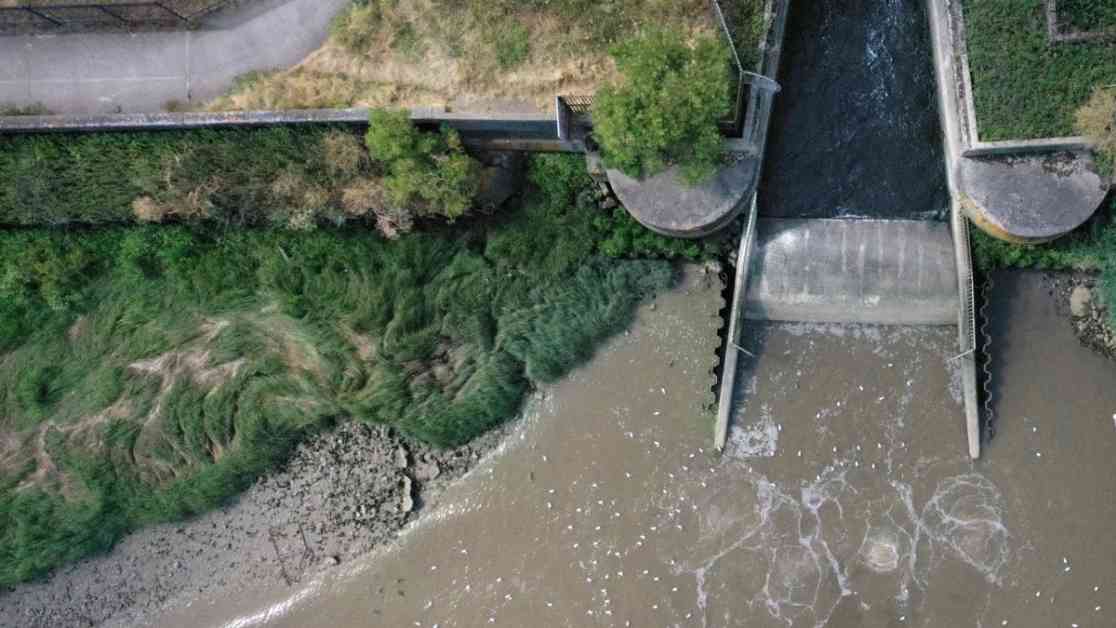Water pollution laws are set to become much stricter in the UK, with water bosses facing the possibility of up to two years in prison if they repeatedly obstruct investigations into the pollution of rivers and seas. This tough stance is part of new measures aimed at cracking down on the sewage crisis plaguing the country.
The proposed legislation, known as the Water (Special Measures) Bill, will grant regulators such as the Environment Agency (EA) and the Drinking Water Inspectorate the authority to bring criminal charges against water executives who are found to be deliberately hindering or failing to cooperate with investigations into their companies’ actions. This marks a significant shift from the current system, where executives could only face fines for non-cooperation, with the maximum penalty set at around £300.
One of the key provisions of the new bill is the ability for regulators to ban the payment of bonuses to water bosses if they fail to address sewage dumping issues. Additionally, water companies will now be required to install real-time monitors on all sewage outlets, including emergency outlets, to detect any illegal spills. If these monitors pick up any unauthorized discharges, automatic fines similar to speeding tickets will be issued to the companies.
The legislation also aims to lower the burden of proof in civil cases, making it easier for the EA to bring criminal charges against water bosses. This could result in significant fines for companies found guilty of wrongdoing. Furthermore, if a water company is found to be at fault, they will be responsible for covering the costs of investigations, freeing up resources for regulators to enforce the law effectively.
In the event that a water company goes bankrupt and falls into “special administration,” the bill includes provisions for the Government to step in until a new operator is found. If a company is sold for less than the Government’s costs, the Secretary of State will be able to ensure that any shortfalls are made up through higher water bills.
These new measures are part of a broader plan by the government to tackle the sewage crisis and improve the overall health of the UK’s waterways. The first step was a reset in relations with the water industry, outlining requirements for ring-fenced spending on infrastructure. The third step, to come later in the parliament, will focus on reforming the wider water sector to address issues beyond sewage pollution, such as water resilience, infrastructure delivery, and upgrades.
Environment Secretary Steve Reed emphasized the need for these measures to hold water companies accountable for their actions. He stated that the threat of jail time for water bosses and the severe fines for illegal sewage discharges will force companies to take pollution seriously and invest in cleaning up the environment.
The new legislation comes after years of underinvestment in water infrastructure, population growth, and extreme weather events have led to a decline in the quality of England’s waterways. Sewage spills have contributed to the poor health of rivers, lakes, and oceans, with no single river in England currently considered to be in good overall health. Popular tourist destinations like Windermere in the Lake District have also been affected by pollution.
In addition to sewage pollution, agricultural runoff has played a significant role in damaging waterways. Some water utilities are struggling with high levels of debt or facing criticism for prioritizing dividends to shareholders and executive bonuses over essential infrastructure investments.
The new sewage laws aim to address these issues by holding water executives accountable for their actions and providing regulators with more power to enforce environmental regulations. The proposed measures mark a significant step towards cleaning up the UK’s waterways and ensuring that water companies prioritize environmental protection over profits.
Subheadings:













